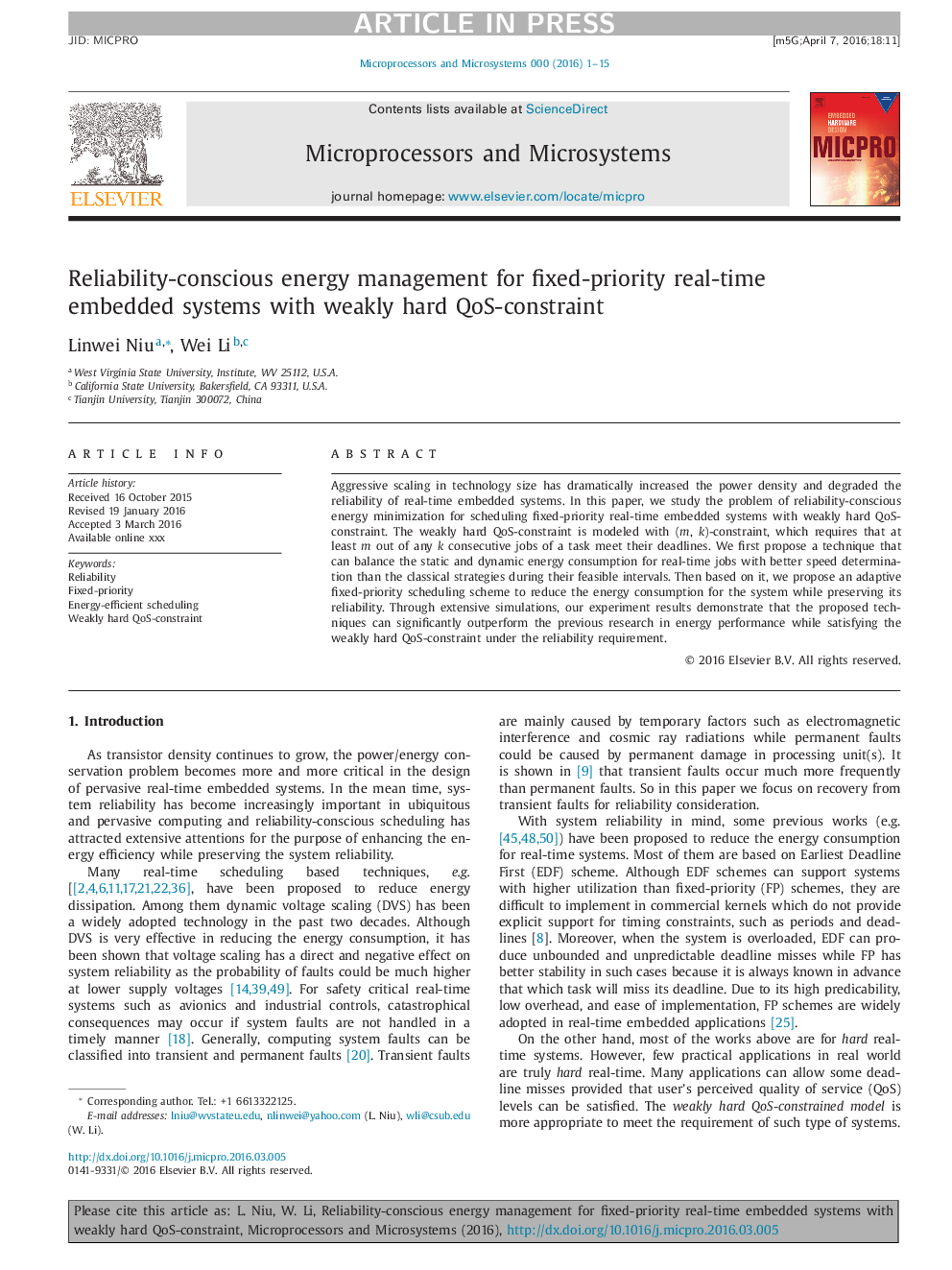| Article ID | Journal | Published Year | Pages | File Type |
|---|---|---|---|---|
| 4956790 | Microprocessors and Microsystems | 2016 | 15 Pages |
Abstract
Aggressive scaling in technology size has dramatically increased the power density and degraded the reliability of real-time embedded systems. In this paper, we study the problem of reliability-conscious energy minimization for scheduling fixed-priority real-time embedded systems with weakly hard QoS-constraint. The weakly hard QoS-constraint is modeled with (m, k)-constraint, which requires that at least m out of any k consecutive jobs of a task meet their deadlines. We first propose a technique that can balance the static and dynamic energy consumption for real-time jobs with better speed determination than the classical strategies during their feasible intervals. Then based on it, we propose an adaptive fixed-priority scheduling scheme to reduce the energy consumption for the system while preserving its reliability. Through extensive simulations, our experiment results demonstrate that the proposed techniques can significantly outperform the previous research in energy performance while satisfying the weakly hard QoS-constraint under the reliability requirement.
Related Topics
Physical Sciences and Engineering
Computer Science
Computer Networks and Communications
Authors
Linwei Niu, Wei Li,
